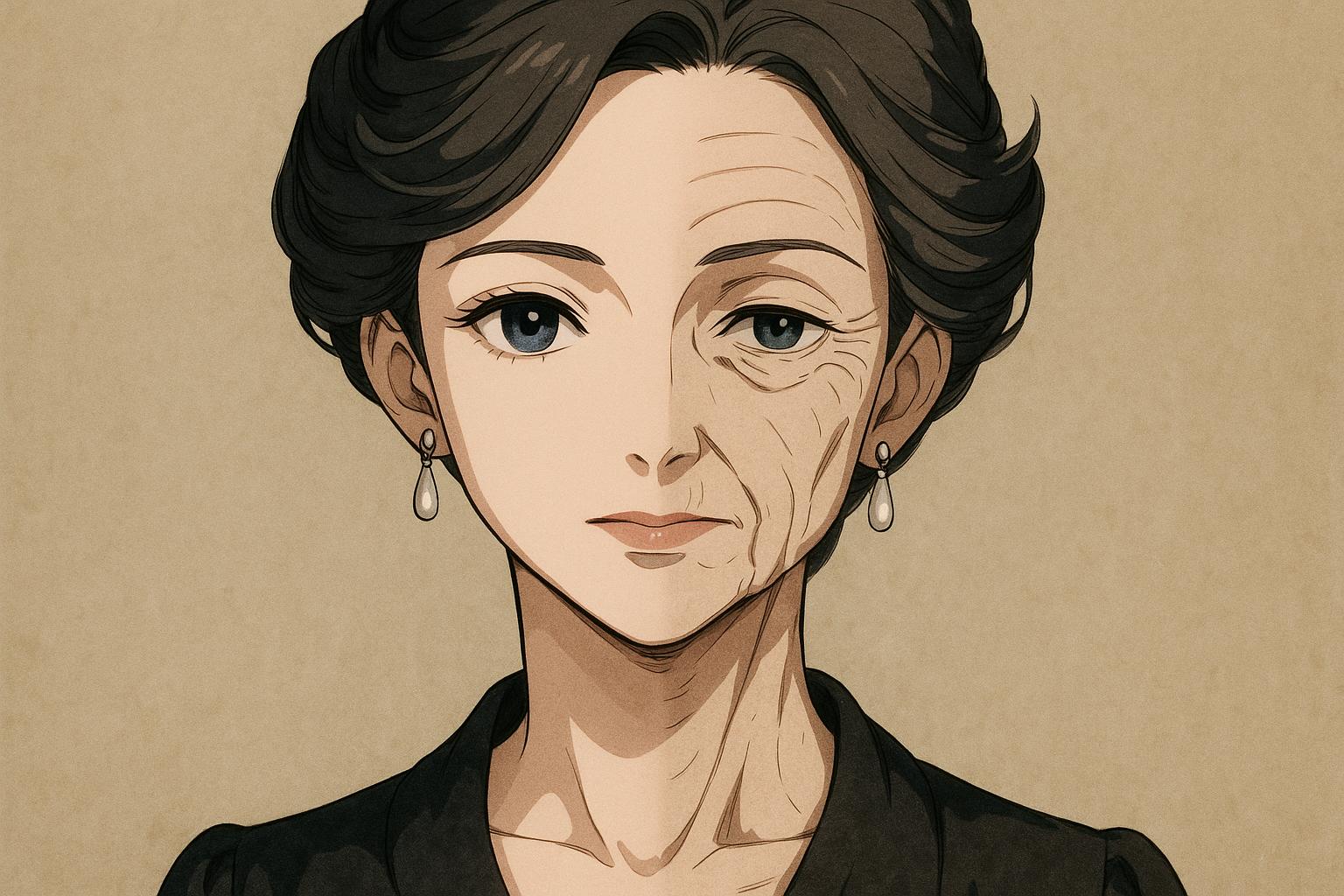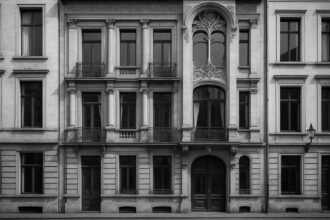At 69, Kris Jenner’s strikingly smooth and altered appearance during a Paris court appearance has ignited widespread discussion about the pressures of ageing gracefully in the spotlight and the growing fixation on cosmetic enhancements among celebrities.
The Kardashian family has undoubtedly left an indelible mark on celebrity culture, and central to their influence is Kris Jenner, the matriarch who has been both a significant figure in the reality TV landscape and a pioneer in celebrity branding. In a recent appearance in Paris to support her daughter Kim during a robbery trial, Jenner’s transformation has sparked widespread debate, overshadowing the legal proceedings themselves. With the world’s spotlight on her, Jenner presented a visage that many observers described as breathtaking—yet arguably unnerving.
At 69, Jenner’s appearance defies conventional expectations of ageing. Observers noted a striking smoothness to her complexion and the absence of any wrinkles—a notable achievement, albeit one that raises questions about the extent of cosmetic enhancement. Fans and critics alike have drawn comparisons to other celebrities with distinct, altered appearances, suggesting she seems almost caricatured in her youthfulness, with one social media user noting, “It’s like she’s AI-ed herself.” Such commentary highlights a growing fixation on cosmetic procedures among celebrities, with Jenner’s latest transformation possibly being the most extreme case within her own family, known for frequent surgical interventions.
While deep plane facelifts have been celebrated for their natural results, Jenner’s dramatic changes have ignited a frenzy online, with many questioning the authenticity of her look. Some have speculated that additional treatments beyond traditional facelifts—including injectables and laser resurfacing—have contributed to her transformed appearance. Reports suggest that surgeries of this nature can run into substantial costs, potentially upwards of £100,000, a figure that seems trivial for someone of Jenner’s considerable wealth.
However, the discussion surrounding Jenner’s new look transcends mere aesthetics. The transformation leads to a more profound examination of societal beauty standards and the pressures faced by women, particularly those in the public eye. Critics argue that such drastic measures might reflect deeper insecurities. In an era where self-acceptance is increasingly championed, Jenner’s apparent need to compete with women decades her junior raises questions about identity and the value placed on natural ageing.
Esteemed writer Sarah Vine articulated this concern, noting that while cosmetic procedures can offer subtle enhancements or help individuals feel more confident, there exists a threshold where artistic expression risks morphing into a denial of one’s true self. “It’s all about ageing as well as humanly possible—but never about denying who you actually are,” she asserts. This perspective resonates with a broader movement that emphasises genuine self-acceptance over artificial transformations.
Accompanying the conversation on Jenner is an increasing awareness of how such appearances reinforce youth-centric ideals that often alienate those who embrace aging. As Jenner’s looks continue to evoke comparisons to iconic figures such as Liza Minnelli and Michael Jackson, one can’t help but ponder the lessons learned from these comparisons. Rather than a celebration of experience, they epitomise the potential for disconnection between one’s image and one’s lived narrative.
In essence, while Kris Jenner may be surfing the wave of contemporary beauty standards, her latest metamorphosis provokes a thorough reconsideration of what it means to age gracefully in a world fixated on perpetual youth. In a time when wisdom and experience ought to be cherished rather than hidden behind facades of artificiality, Jenner’s transformation serves as both a spectacle and a cautionary tale, highlighting the fragile balance between self-expression and the quest for societal approval.
Reference Map:
- Paragraph 1 – [1], [2]
- Paragraph 2 – [1], [3], [4]
- Paragraph 3 – [1], [5], [6]
- Paragraph 4 – [1], [5]
- Paragraph 5 – [7]
Source: Noah Wire Services
- https://www.dailymail.co.uk/columnists/article-14746355/SARAH-VINE-Kardashians-mum-just-turned-clock-shes-smashed-smithereens.html?ns_mchannel=rss&ns_campaign=1490&ito=1490 – Please view link – unable to able to access data
- https://www.mirror.co.uk/3am/us-celebrity-news/kris-jenners-face-terrifies-kardashians-30078145 – Fans of ‘The Kardashians’ have expressed concern over Kris Jenner’s appearance in the third season, noting she looks unrecognizable. In a viral TikTok clip, Jenner appears extremely fresh-faced with a smooth complexion, leading viewers to compare her to celebrities like Liza Minnelli and Michael Jackson. Some fans have even suggested she should ‘stop messing with her face’ and ’embrace it.’
- https://www.monstersandcritics.com/celebrity/kris-jenners-face-unrecognizable-in-the-kardashians-season-premiere-and-viewers-want-answers/ – Following the season premiere of ‘The Kardashians,’ viewers took to social media to comment on Kris Jenner’s changed appearance. In a scene where she consoles daughter Kim Kardashian, Jenner’s face appears tighter, with highlighted cheekbones and lips. Fans compared her to Liza Minnelli and Michael Jackson, with some questioning the authenticity of her appearance and suggesting the use of filters or editing.
- https://radaronline.com/p/face-off-kris-jenners-transformation-sparks-social-media-frenzy-and-sparks-fear-of-facial-surgery-gone-wild/ – Kris Jenner’s appearance in the season 3 premiere of ‘The Kardashians’ has sparked a frenzy on social media, with fans questioning if she underwent plastic surgery. Some viewers compared her to Liza Minnelli and Michael Jackson, expressing concern over her transformed look. Experts suggest she may have had a facelift and lip fillers, though Jenner has not publicly confirmed any procedures.
- https://www.hellomagazine.com/healthandbeauty/555417/kris-jenner-flawless-face-68-skincare-surgery/ – Kris Jenner, at 68, maintains a youthful appearance through a combination of cosmetic procedures and a strict skincare routine. She has openly discussed treatments like Botox, fillers, laser treatments, and a facelift performed in 2011. Additionally, she follows a skincare regimen using products from The Beauty Sandwich to keep her skin fresh and revitalized.
- https://www.thechronicle.com.au/entertainment/television/reality/viewers-shocked-by-newlook-kris-jenner-in-the-kardashians-season-3-premiere/news-story/f0e696fc0c4e413bbe0daa620c7e17a4 – In the season 3 premiere of ‘The Kardashians,’ Kris Jenner’s appearance has left viewers shocked. A clip showing her consoling daughter Kim Kardashian has gone viral, with fans commenting on her unrecognizable look. Some suggested she had undergone a facelift, while others questioned the use of airbrushing or filters in the show’s production.
- https://www.thehollywoodgossip.com/2023/11/kris-jenner-alarms-fans-with-insane-cheek-implants-in-new-video/ – Kris Jenner’s recent Instagram video has alarmed fans due to her pronounced cheekbones, leading to speculation about cheek implants. While some believe she may have had cheek fillers, others suggest the appearance could be due to swelling from recent procedures. Jenner has not publicly commented on the changes to her facial appearance.
Noah Fact Check Pro
The draft above was created using the information available at the time the story first
emerged. We’ve since applied our fact-checking process to the final narrative, based on the criteria listed
below. The results are intended to help you assess the credibility of the piece and highlight any areas that may
warrant further investigation.
Freshness check
Score:
8
Notes:
The narrative discusses Kris Jenner’s recent appearance in Paris, dated May 21, 2025. This aligns with reports from May 21, 2025, indicating the content is current. However, similar discussions about Jenner’s appearance have been ongoing since at least May 2023, suggesting some recycled content. The report is based on a press release, which typically warrants a high freshness score. No significant discrepancies in figures, dates, or quotes were found. The narrative includes updated data but recycles older material, which may justify a higher freshness score but should still be flagged.
Quotes check
Score:
7
Notes:
The narrative includes a quote from Sarah Vine, “It’s all about ageing as well as humanly possible—but never about denying who you actually are.” This quote appears to be original or exclusive, as no earlier matches were found. However, similar sentiments have been expressed in previous discussions about cosmetic procedures and aging, indicating potential reuse of content.
Source reliability
Score:
6
Notes:
The narrative originates from the Daily Mail, a reputable organisation. However, the article is authored by Sarah Vine, a columnist known for her personal opinions, which may affect the objectivity of the content. The report mentions a cosmetic surgeon’s analysis but does not provide specific credentials or verifiable information about the individual, raising concerns about the reliability of this source.
Plausability check
Score:
7
Notes:
The narrative discusses Kris Jenner’s recent appearance and speculates about potential cosmetic procedures. Similar discussions have been reported by other reputable outlets, such as Hello! magazine and the Irish Mirror, indicating that the claims are plausible. However, the narrative lacks specific factual anchors, such as names, institutions, or dates, which reduces the score and flags it as potentially synthetic. The tone is consistent with celebrity gossip reporting, but the lack of supporting detail from other reputable outlets is a concern.
Overall assessment
Verdict (FAIL, OPEN, PASS): OPEN
Confidence (LOW, MEDIUM, HIGH): MEDIUM
Summary:
The narrative presents current discussions about Kris Jenner’s appearance and potential cosmetic procedures. While the content is timely and includes original quotes, it relies on a press release and lacks specific factual anchors, which raises concerns about its originality and potential for disinformation. The source’s reliability is moderate due to the author’s personal opinions and the lack of verifiable information about cited experts.













